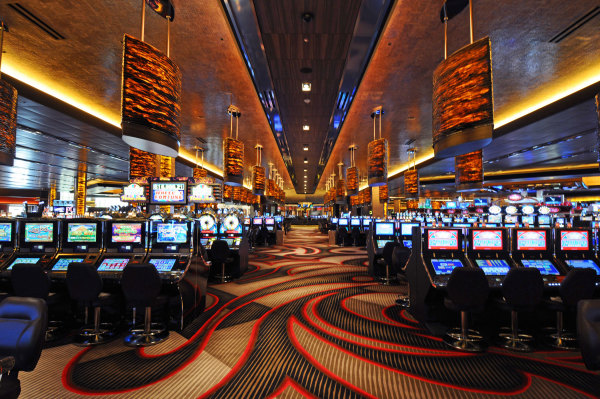
The world of entertainment has seen numerous transformations over various decades, but few have captured the creativity and excitement of gamers like gambling games. Emerging in from the vibrant halls of Las Vegas and Atlantic City, these entertainments have moved beyond borders and societies, becoming a global phenomenon. Whether in the dazzling lights of a mega-resort to the comfort of online sites, the allure of casino games is irrefutable, drawing millions into a world of chance and strategy.
As more countries accept betting in multiple ways, the influence of U.S. gambling is obvious. They have not only shaped local gambling markets but have also sparked countless adaptations and innovations globally. Classic games such as the poker and blackjack, along with modern variations, have created a common dialect of entertainment that connects across diverse populations. The combination of gambling risks, reward, and social engagement found in these activities fosters a unique sense of belonging, further solidifying their place in the global entertainment sphere.
Cultural Summary of U.S. Casino Games
U.S. casino games have a diverse and colorful history that reflects the cultural development of the U.S.. The beginnings of these games can be linked back to multiple European gaming traditions introduced over by settlers. Games like poker, blackjack, and roulette worked their way into the fabric of U.S. society in the 1800s century, achieving fame in bars and steamboats. These venues provided the ideal setting for social engagement and competition, laying a solid basis for casino gambling as we recognize it today.
As the nation expanded to the west, gambling evolved in tandem with it. The Gold Rush era in the mid1800s saw the rise of gaming towns such as Deadwood, South Dakota and Tombstone, where games were played with high stakes, frequently punctuated by an air of lawlessness. This period set the stage for the formalization of casino games in the beginning of the 20th century, especially with the establishment of Las Vegas as a gambling hotspot. The construction of opulent casinos changed the gaming environment, establishing an atmosphere where gambling activities could thrive and draw tourists from across the globe.
In recent decades, the approval of casino gambling in multiple states has additionally diversified the variety of games available. American casinos now offer a mix of classic games and innovative offerings that serve to contemporary players. https://gacam888.co/ This expansion has enabled for a distinct blend of old and newfangled, facilitating the ongoing evolution of casino culture in the U.S.. The international influence of these games has also contributed to their incorporation into global gambling industries, demonstrating the enduring influence of U.S. casino games around the globe.
Global Popularity and Influence
The rise of U.S. casino titles has marked a significant shift in the global gaming landscape. With their attraction crossing borders, these games have enthralled players around the globe. From Texas Hold’em tournaments to slot machines, U.S. styles have found a home in many global casinos. This transference of culture emphasizes how versatile and compelling these titles are, tailoring to local tastes while maintaining their timeless U.S. charm.
Moreover, the impact of these games extends beyond conventional gambling establishments. Digital platforms have played a pivotal role in promoting U.S. gambling games, making them available to gamers globally. The ease of online gambling has brought millions to opportunities that were once limited to brick-and-mortar casinos. Players can now enjoy their beloved titles from any location, sparking a new wave of enthusiasm and growing the player base significantly.
This global embrace is also seen in the incorporation of American casino titles into local traditions. Countries that have embraced these titles often host their own adaptations and competitions, blending local traditions with U.S. gambling traditions. This fusion not only enhances the gaming experience for players, but it also highlights the powerful impact that U.S. gambling games have on both leisure and community interaction across different societies.
Cultural Adjustments and Improvements
Gambling games have undergone significant changes as they spread across various societies. Every area has taken in elements of U.S. gambling while adding its own customs and habits. For instance, the rise of online casino platforms has allowed for the inclusion of local character into classic titles like Texas Hold’em and blackjack. Players now enjoy versions that include regional wagering styles and distinct rules, making the games more relatable and welcoming for different crowds.
In many countries, the appeal of gambling games has resulted to the development of localized versions that showcase cultural themes and narratives. This flexibility has opened doors for innovative game development that resonates with gamblers on a individual level. Slot machines, for example, now showcase imagery and sounds that celebrate local traditions, folklore, and popular culture, which in turn improves the gaming adventure and promotes a feeling of community among players.
Additionally, the global impact of American casino games has led to new game formats and hybrid formats. Some establishments have merged traditional betting with amusement aspects, such as live performances or interactive tech, leading to a more engaging experience. These developments not only attract a wider crowd but also ensure that the essence of gaming continues to evolve, connecting gaps between different communities while preserving the excitement that gambling games are known for.
